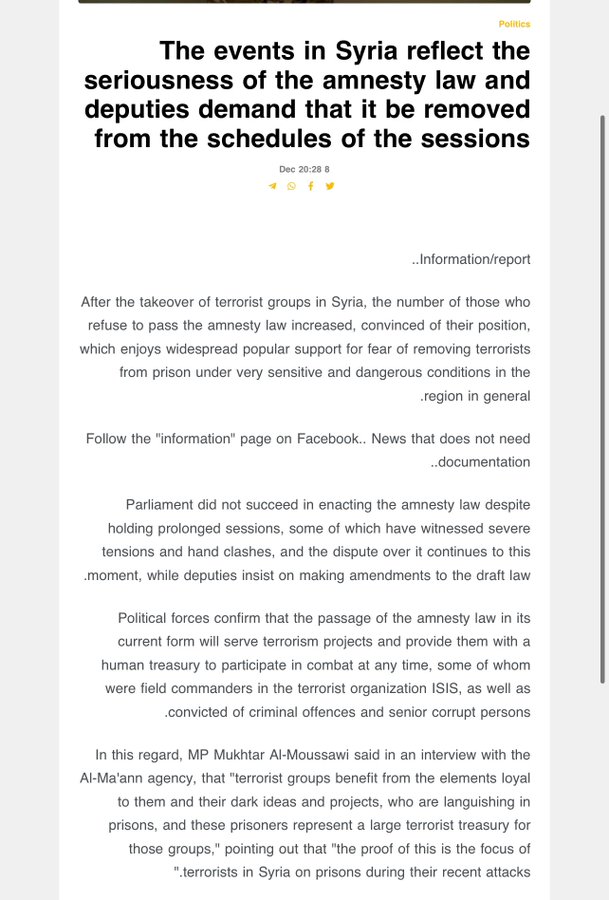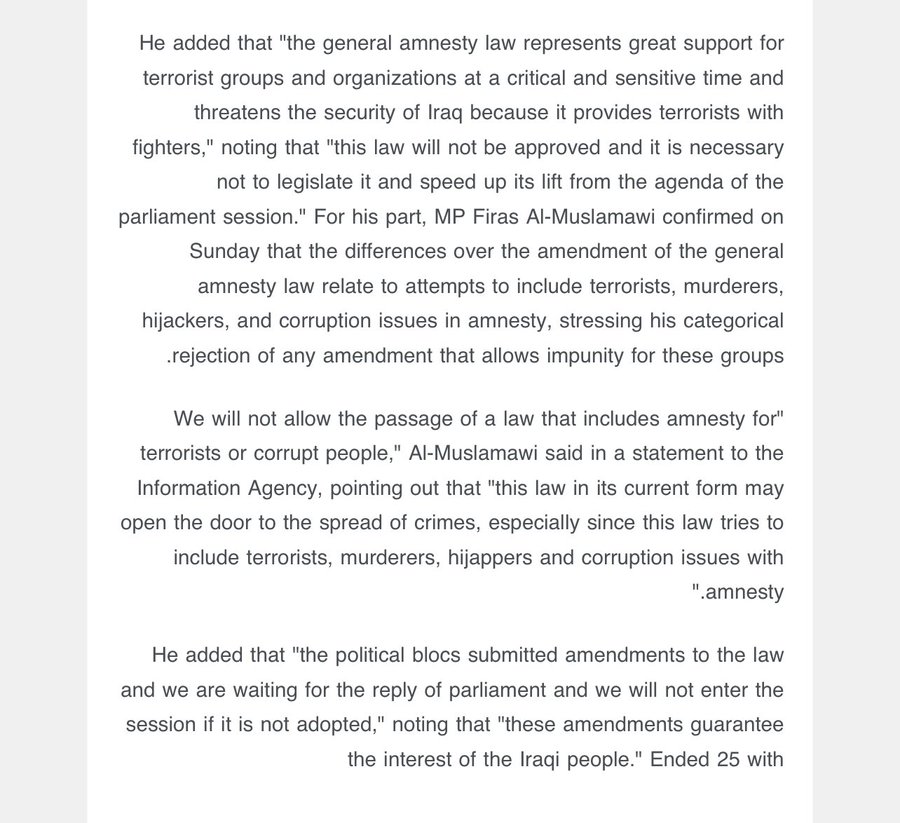Regional shockwaves: The fall of Al-Assad's regime and Iraq's political dilemmas
Shafaq News/ The collapse of Bashar al-Assad's regime in Syria has sent shockwaves across the Middle East, with profound implications for neighboring Iraq.
The Syrian civil war, which began in 2011, culminated in November 2024 when opposition forces started a surprise attack on the Syrian army and took control of major cities including Aleppo, Homs, and Damascus, ending over 50 years of Al-Assad family rule and marking a historic turning point.
Iraq, already grappling with internal challenges, is now facing heightened instability due to the spillover effects of Syria's fragmentation along ethnic and religious lines. This raises fears of similar repercussions within Iraq.
Shiite Bloc: Balancing Act Amid Regional Upheaval
The relationship between Iraq's Shiite political factions and the Alawite Al-Assad family has been historically rooted in alliances forged during the Iran-Iraq War (1980–1988), with both siding with Iran against Saddam Hussein's Sunni-dominated regime.
Post-2003, some Iraqi Shiite factions, particularly those aligned with Iran, actively supported Al-Assad's regime, even fighting alongside Syrian government forces. However, this time Iraqi leaders have shown restraint, avoiding direct involvement in Syria’s conflict to prevent destabilizing effects at home.
Political analyst Azzam Al-Hamdani highlighted the Shiite bloc's cautious stance, "The Shiite political bloc [Coordination Framework] is the decision-maker in Iraq and perceives the war in Syria as a potential catalyst for change and the emergence of new regimes in the region. Therefore, it fears for its interests and Iraq, given its control over the political balancing act in the country."
This sentiment was echoed by Abdul Rahman Al-Jazairi, a leader within the ruling Framework. He expressed concerns about the broader regional implications, stating, "Prime Minister Mohammed Shia Al-Sudani believes Iraq is not part of the conflict, contrary to some politicians' claims that the war is approaching the country."
Sunni Bloc: Limited Influence in Regional Affairs
The Sunni political bloc in Iraq is viewed as lacking decision-making power and influence, often following the directives of the Shiite leadership.
Al-Hamdani noted, "The Sunni political bloc is not a decision-maker in Iraq; it represents the weakest link and thus relies on the outcomes rather than influencing regional events."
"The Sunni political actor is weak and ineffective to be a party in the equation; rather, it is subject to the dictates of Shiite political decisions. Even though there is a partnership in the state within the political system, it still adheres to what is imposed on it by Shiite political decisions."
“The Sunni house is a participant, not a partner, and follows the path dictated by Shiite political decisions. The same is true for the Kurdish political house." Al-Hamdani said.
Khamis al-Khanjar, head of Iraq’s Sunni Sovereignty (Al-Siyada) Alliance, is one of the few Sunni leaders to address the Syrian regime's collapse. He congratulated the Syrian people, calling the event “the end of an era of criminal dictatorship in Syria and the beginning of a new chapter.” Al-Khanjar also urged all nations to respect Syria's sovereignty, emphasizing non-interference in its internal affairs.
Kurdish Bloc: A Measured Response
The Kurdish political perspective reflects both strategic considerations and a sense of shared danger. Kurdish analyst Abdul Salam Barwari emphasized the Alawite-led Syrian regime's pivotal role as a conduit for Iranian support to Hezbollah via Iraq.
Barwari explained, "It is unfair to say that Sunnis and Kurds are uninterested in the events in Syria. However, their reactions are calmer compared to the Shiite positions, due to the lack of a direct threat to them. But if Iraq is targeted, the threat will affect everyone."
He further noted the uneven media attention on different political groups, "Sunni and Kurdish politicians share the same sense of danger as the Shiites, but media coverage tends to focus more on Shiite politicians and officials, resulting in their greater media presence."




